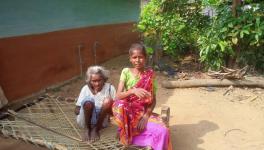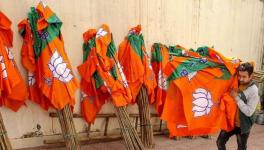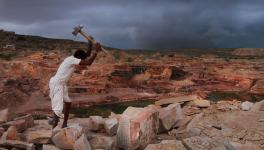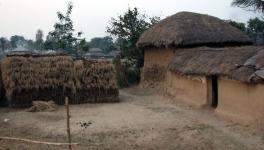Bengal: Man-Elephant Conflict Worsening Condition of Rabha Community in Alipurduar's Forest
Madarihaat (Alipurduar): Pulin Rabha, 39, is one of the outspoken Rabha activists belonging to the endangered Rabha community of West Bengal. He and others say that escalating man-elephant conflict is threatening their forest-dwelling areas.
"We are in great danger of being evicted once again from the Dhumchi forest area where we have lived for the last few centuries, as man-elephant conflict has risen to enormous proportions here. We cannot go outside after the evening or take our patients to nearby hospitals after dark. Every year, we cultivate paddy but our two croplands have been turned into mono-crops in fear of invasions by herds of elephants. They destroy paddy and attack our homes," Pulin Rabha said while speaking to NewsClick.
Pulin Rabha has studied till the second year of his BA degree and is presently the block secretary of All India Kisan Sabha (AIKS).
All the developments that have taken place in the area happened during the 34 years of Left rule, he claimed, saying that from the local primary school to the Anganwadi centre, everything was built at that time. "Now it's a barren time," he alleged, referring to the present government run by the Trinamool Congress. He added that even though Rabhas are political, they maintain cordiality amongst themselves and avoid political clashes within the community.
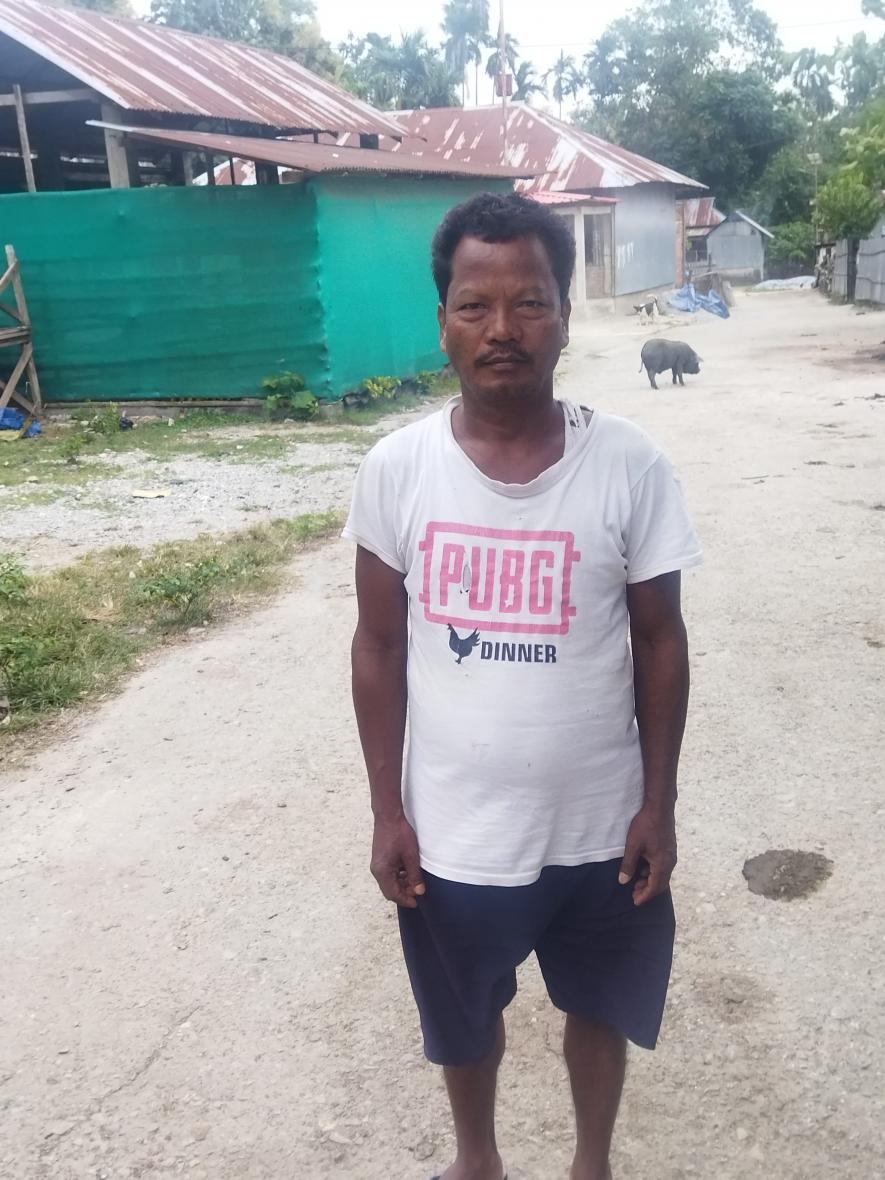
"We need a local primary health centre for our community, but who will do it? Our political inclination remains fossilised, he said, and will remain so as most of the Rabhas are traditionally left supporters," he said, talking with NewsClick.
Who are Rabhas?
According to Rabha elders, legend says that Rabhas had been tribal soldiers of the Raja of Coochbihar long ago. After the removal of the Koch king in warfare with the British, the Rabhas had to flee their homeland in Coochbihar; many moved to Assam, while many moved to Alipurduar, residing in forest areas to save themselves from the wrath of the Britishers.
To arrive in the Dhumchi forest's Rabha bustee, one has to move through seven kilometres of dense forests from the highway of Sishubari More, which is the nearest road connection to the area. The route through the forest is actually torrential riverbeds that do not have water in the pre-winter months, where herds of elephants and other wild animals roam.
The Rabha bustee houses about 100 families with a population totalling around 386. A few thousand of the Rabha population live in Alipurduar district. Still, Dhumchi is unique because, here, the total population is just Rabhas, and it is one of the oldest Rabha bustees in Alipurduar.
According to Rabha elders, the bustee was established in the 17th century. Far above on the hillside is a government forest plantation, where lived a Rabha guard; he was the only person in the history of the Dhumchi Rabha bustee to hold a government job. He has since retired, and now, in the Rabha bustee area, no one works in government or non-government jobs.
It was in 1982 that the Rabhas left their earlier faith in Hindu gods and goddesses and converted to Christianity. Earlier, they used to cremate their dead, but now they bury the dead. However, they still maintain nostalgic touch with their earlier gods and goddesses, which were nature gods. Their society is also matrilineal.
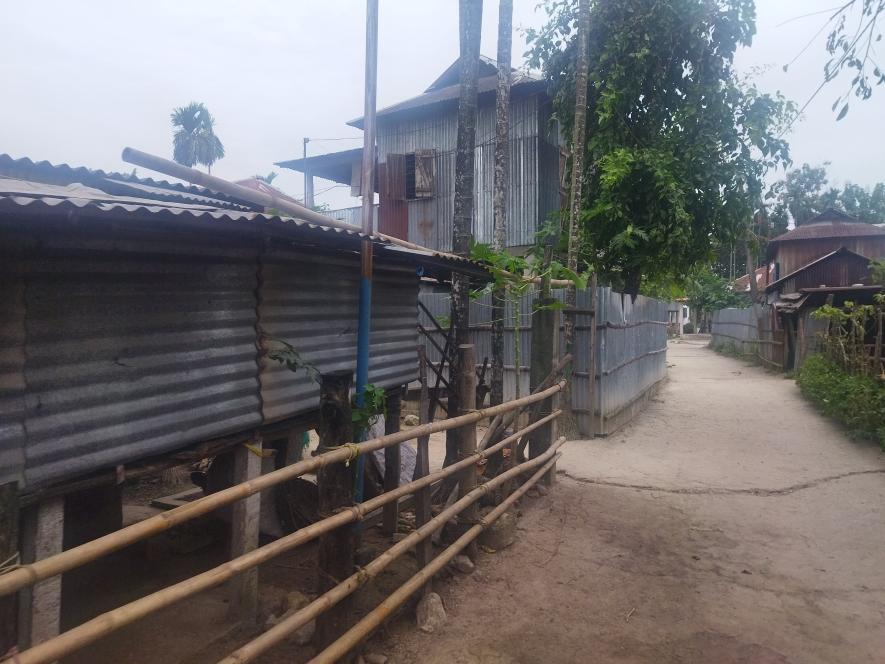
Rabhas earlier used to marry within their community, but now, after their conversion to Christianity, they marry outsiders as well, the only precondition being that both the bride and bridegroom should also be of Christian faith.
Man vs Wild vs Poverty
Haren Rabha (48) was an elected member of the panchayat for two terms after the formation of Panchayati Raj in West Bengal. He told NewsClick that the panchayat system had been the most beneficial to people during the times of the Left Front government, and they could themselves plan for the betterment of their society.
They had started many unique programmes at that time, he said. Even electrification was done in 1991, and the Rabhas have been used to electricity in their homes since the 90s decade. But now, due to the high charge of electricity, many Rabha families are finding it difficult to pay their bills. Rabha youths now venture outside the state and work as migrant labour in other states and send money back to their families with which they renovate their houses.
Haren's son is in Kerala, where he works as an assistant in a meat processing shop. His son studied up to class 8 and moved to Kerala afterwards for work after not finding any opportunity in his locality or even in the state. Scopes of work for Rabha youths are non-existent in the state; even the 100 days' work is not readily available in the village.
"Something must be done about it," said Haren Rabha, 48, while talking to NewsClick.
However, their first and foremost challenge is the elephants, and the tribals have a grudge against the forest department for not doing anything to keep the elephants away from their fields.
"The forest department talks more and does little to protect the life and livelihood of the Rabhas," Haren Rabha alleged.
"Every year, we plant paddy and millets, but most of the crop is destroyed by the elephants. The forest department can take initiatives to enthuse the Rabhas to grow other crops in the place of rice and millet, which do not attract the elephants. Despite talking to officials in the forest department, little or no response has been obtained from the forest department in this regard," he added. The elephants also raid the human habitats in search of the country liquor made by Rabhas, which the animals love.
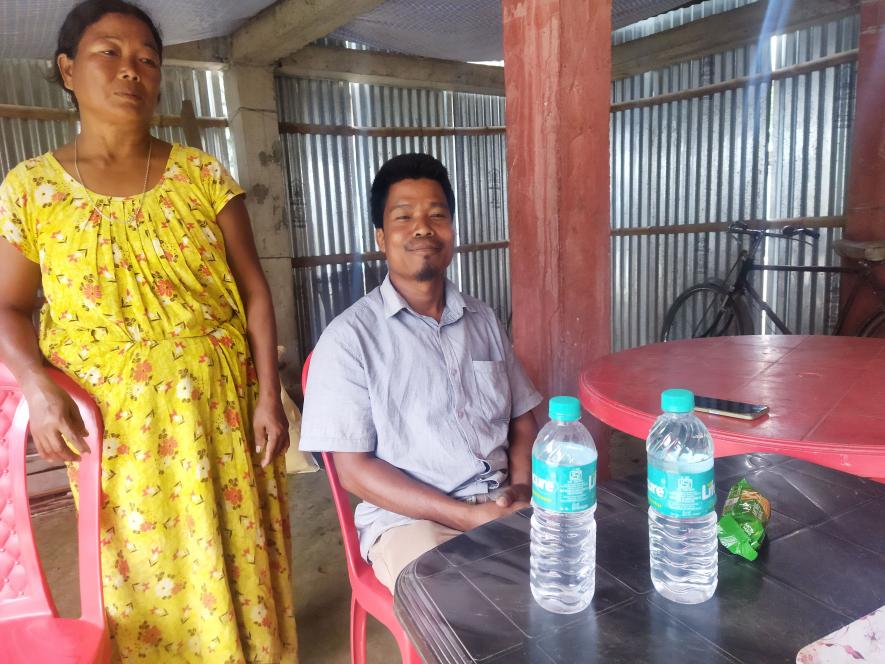
Dhumchi forest is an extended corridor of the Jaldapara Wildlife Sanctuary. Some herds of elephants often go astray in this area of North Bengal, killing people and destroying crops; they also enter human habitats while going from one forest to another. Currently, a herd of 100 elephants is roaming in the Dhumchi forest area, according to local intel.
Some people have accused the forest officials of not taking any steps to enthuse the Rabhas to maintain any alternate source of livelihood other than rice and millet cultivation.
Speaking to NewsClick, Gopal Chandra Das, the deputy range officer of Dhumchi, expressed helplessness regarding the elephant attack on human habitats. "At most, we are providing compensation to them for the destruction of crops by elephants. The Rabhas have to fill out a form following which the compensation comes," he said.
Regarding alternate plantations, Das added that "nothing has been taken up regarding this matter." He said, "Only tea plantations will sustain here, but the land being government forest land, we cannot give them permission to plant tea trees."
Addressing the issue of whether the compensation suffices as a solution, Pulin Rabha said, "Compensation received for crop destruction is too less and cannot compensate for the hard labour we put to till our lands."
In their struggle for existence, the Rabhas are fighting an uphill battle, and the government's apathy has only made things worse, according to the community members.
Get the latest reports & analysis with people's perspective on Protests, movements & deep analytical videos, discussions of the current affairs in your Telegram app. Subscribe to NewsClick's Telegram channel & get Real-Time updates on stories, as they get published on our website.











